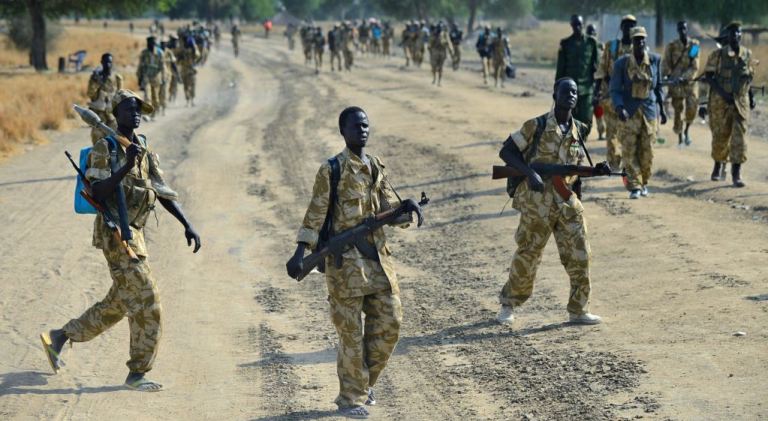South Sudan army contains internal rift over deserting units

June 30, 2017 (JUBA) – The command of Sudan Sudanese army (SPLA) has contained a rift among soldiers deployed on the front line in the northern part of the country, after fears that a split could undermine the capability of the government army in that troubled area.
A high-ranking military officer told Sudan Tribune on Friday that a decision by some officers and soldiers loyal to the former SPLA chief of staff deployed to the former Unity State caused a headache to the command until Gen. Paul Malong had to be approached by the community leaders and his political friends to talk to them to drop their plan to leave in their areas of their deployment.
“There was a misunderstanding between units of our forces in Leer. They were those who were deployed there as part of reinforcement to bolster the fighting strength of the 4th division infantry. These units were from different divisions in the country. Some were taken from the headquarters and others from other divisions. They were deployed for specific reasons for a specific period but they overstayed and they felt they need to be replaced”, explained the military officer.
The officer said a majority of these soldiers come from Aweil of Bahr el-Ghazal region and instead of asking for a permission to return home, they prefer going to their families in Aweil even before replacement is made.
“It is a big challenge but thanks God the former chief of general staff intervened and was able to speak to them urging to remain in their positions (on the front line against the enemy) and they listened to him. Now they are waiting for the replacement so that there is no security vacuum”, said the officer who did not want to be identified.
Several military sources and politicians with direct knowledge also confirmed that an intense situation emerged between different units and soldiers loyal to Paul Malong.
Observers say the rift meant to protest the removal of former chief of staff from his position, pointing their feel personally harmed by this decision because their regional dignitary protected their rights and families if something happened to them.
(ST)
